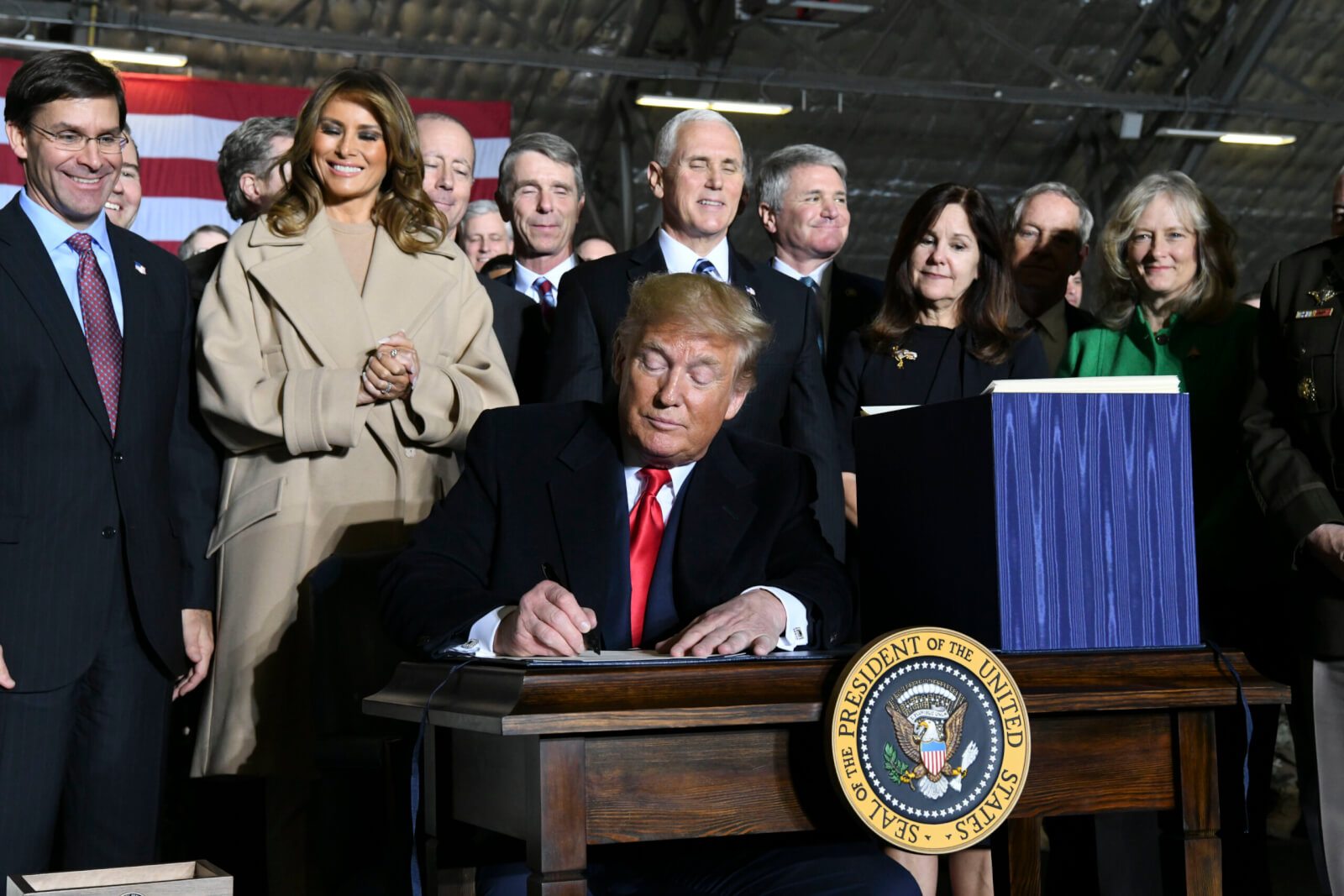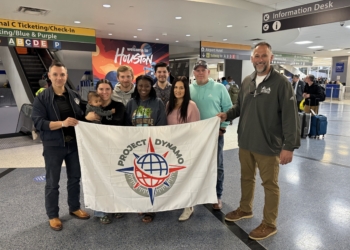On Dec. 20, 2019, after a more than 40-yearslong battle, surviving families advocated their way to the repeal of the “widow’s tax.” By passing this non-partisan legislation, Congress put actions in front of words, and dollars in the hands of families who have paid the ultimate price.
The “widow’s tax” was a longstanding policy oversight that affected over 65,000 military survivors. When a service member dies while on active duty or from a military-related illness their families may be eligible for both the Survivor Benefit Plan (SBP) & Dependency and Indemnity Compensation (DIC). Because of concurrent receipt laws (provisions to avoid double-dipping in government benefits), for every dollar paid out via the DIC, one dollar was deducted or “offset” from the SBP insurance payment. This offset cost families roughly $11,000 annually. Not only have these families lived through the nightmare of losing a spouse or loved one, they have had to fight to stay afloat both emotionally and financially.
Survivors
In 2013 Gold Star widow Kathy Prout started the Military Widows: SBP-DIC Offset Facebook group as a way for survivors to share their concerns about the offset and related legislation. What began with 6 members grew to over 2,000 today. “With privacy laws you can’t find anybody. You can’t find another widow unless somebody says ‘I know somebody’” said Prout. Over time and with the power of social media, this group grew in number and purpose.
“I am a teacher. I taught them,” said Prout. Her lesson plans, which resembled marching orders, included a plan of the week with assignments to call representatives who were on the fence. “Everybody in the [Facebook] group was responsible for calling their own congressmen and senators weekly to remind them about the issue and to keep this on the front burner.”
One key focus of their effort was coupling consistency with kindness. When cosponsors signed on to support the repeal of the offset, she instructed members to write thank you letters. No one was to be shamed for not signing. Instead, they were to be educated. They didn’t take out frustrations on congressional staffers, who they now knew by name. They helped make supporting their cause easier. “We provided all the information. Staffers have too many issues [to research] … there is no time in the day.”
By speaking the language of government in addition to telling their own authentic stories these survivors became an unstoppable force.
Key players
As intentional as surviving families were they needed an advocate, someone to champion their cause. While there were many supporters, Sen. Doug Jones, D-Ala. made passing this legislation a main priority. According to Jones, including the repeal of the offset in the 2020 National Defense Authorization Act (NDAA) demonstrates “our commitment to our veterans, our military service members and their families because they are the ones making the sacrifices for us. We have got to do more than just give this lip service and talk about the support for our military and throw money at modernizing our military. This is for families. This is for human beings.”
Jones emphasized the need for consistency and maintaining momentum. Because of the lack of understanding and high price tag associated with this legislation, “it wasn’t something that you could just file and make a speech on. You had to constantly work at it. That is what we did and it made a big difference” said Jones. His investment in the cause was evident as he emotionally recalled hearing from a widow in an Alabama press conference, “’now my husband can finally rest in peace knowing that his commitment to me has been fulfilled.’ That was incredibly gratifying.”
Advocacy groups
Another resource that made 2019 more successful than the previous 2 decades was the unified message presented by a coalition of military service organizations including Tragedy Assistance Program for Survivors (TAPS) – Veterans of Foreign Wars (VWF) , National Military Family Association (NMFA), Gold Star Wives of America, Military Officers’ Associate of America (MOAA) and others. Because of their familiarity with government and their connections to elected officials they provided guidance and leadership to the widows-turned-activists.
“The most significant thing this year was the grassroots advocacy effort from the impacted spouses themselves. It was stellar. That is really what has been missing in the past” said Candace Wheeler, policy director for TAPS. Alongside military survivors and political leaders, these organization emphasized that this was not a partisan issue. It was not even a bipartisan issue. It was a non-partisan issue that needed to be corrected.
What to expect
There is still work that still needs to be done. Defense Finance and Accounting Services (DFAS) will now begin to calculate what is owed these families, an undertaking that will likely require a significant amount of work and time. There will be a phase-in process to receive this SBP benefit starting in 2021. DIC benefits will remain the same.
Jan. 1, 2021 – ⅓ of owed SBP, SSIA
Jan. 1, 2022 – ⅔ of owed SBP, SSIA
Jan. 1, 2023 – full benefits, child-only option phased out & those whose children “aged out” can start to receive benefits
Questions?
Updates to the SBP-DIC Offset can be found on the DFAS website
Customer service: 800-321-1080
TAPS: policy@taps.org
AUTHOR’S NOTE: On behalf of all military spouses – thank you to those who have gone before us, fighting this battle so we will not have to. You have proven that there is power in sharing one authentic voice and that together we can enact real change.
Don’t forget the ‘kiddie tax’
Whenever there is “bad” legislation, like the offset, there are workarounds. In this case many spouses with dependents chose to transfer SBP payments to their children to avoid the offset reduction. However, the 2017 Trump tax law moved these surviving children into a higher tax bracket, in the same category with wealthy trust-fund kids, costing survivors thousands more in taxes each year. This penalty is called the “kiddie tax.” This oversight has also been corrected with the inclusion of Rep. Elaine Luria’s (D-Va.) Gold Star Family Tax Relief Act in another appropriations bill. Affected families are now eligible to amend last year’s tax returns.
Read comments




























